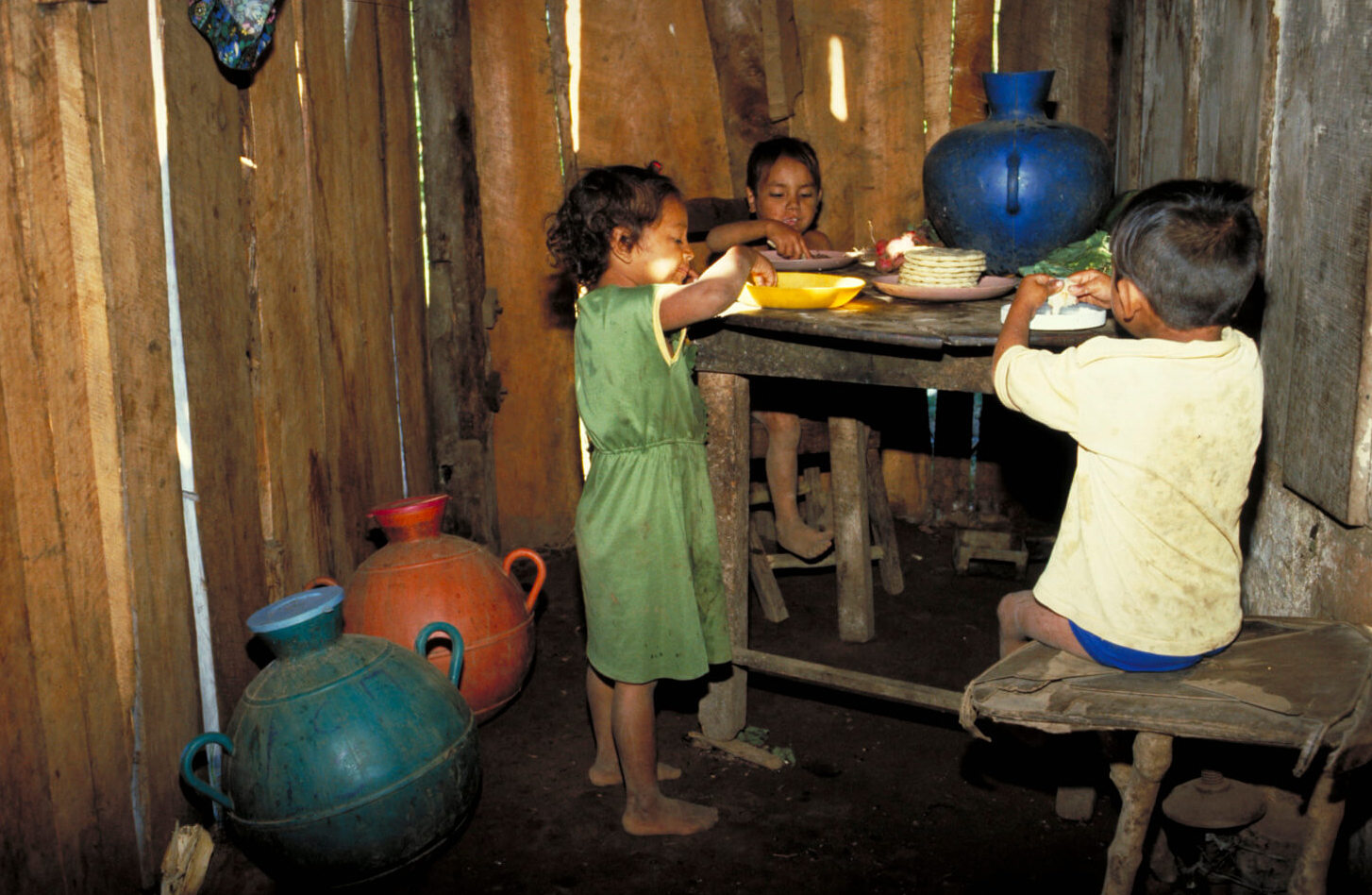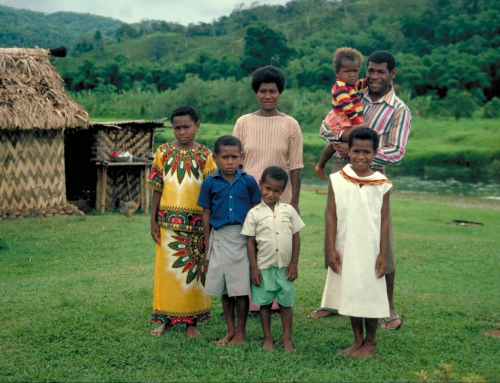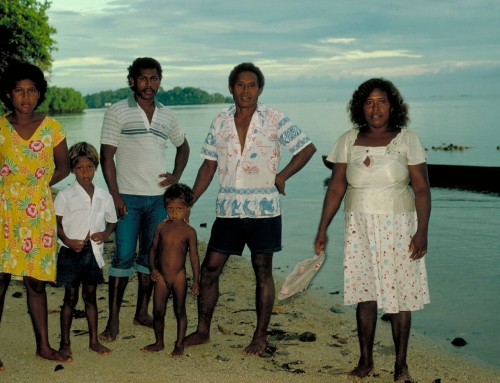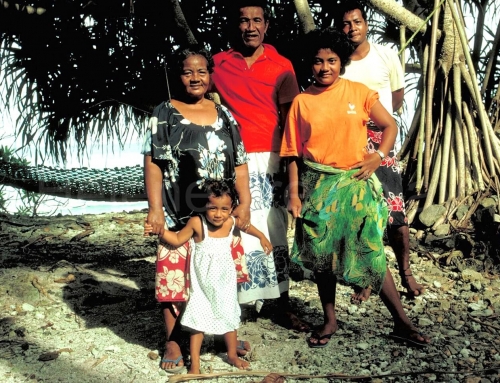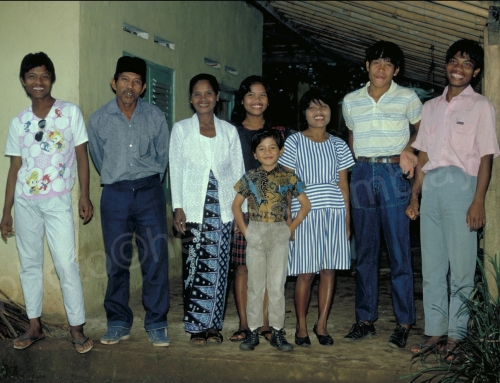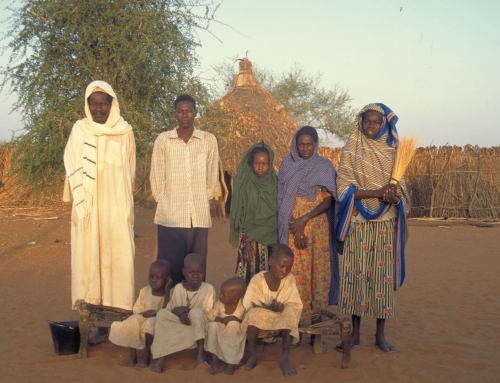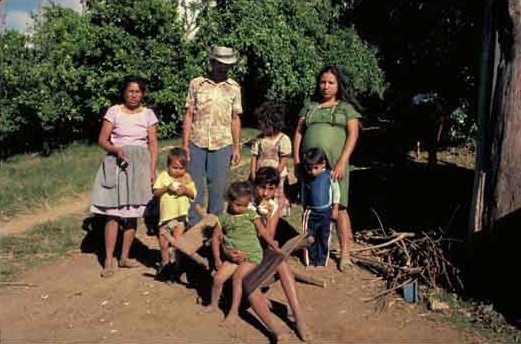
Juan Antonio Faile Castro, age 53
Jesus Paz, 46
Ana Hidalia Paz, 26 (absent)
Lidia de Carmen Paz, 22 (absent)
Juan Elizabeth Paz, 18
Ana Francisca Paz, 13
Maria Catalina Faile, 7
Juan Antonio Faile Paz, 5
Evelyne Galimet, 3
Carlos Alberto Faile, 4
3 chickens
1 rooster
CANTON LA MAJADA
November 19, 1984
5:45. A small earthquake rumbles through the hills of El Salvador’ s coffee-growing region. The Fraile Paz family’ s wooden hut creaks at every joint, their beds shake, and it seems as though the wind will sweep away the insecurely attached corrugated-iron roof. In one of the two rooms Jesus Paz coughs and hacks incessantly. She has had bronchitis for months and her perpetual cigarette smoking aggravates it terribly. Beside her, her three-year-old granddaughter, Evelyne, starts to cry. The quake has awakened everyone. Juan Antonio switches on the radio to find out the time, and he and his wife get up. They put on the same clothes from yesterday and the day before. They have no choice.
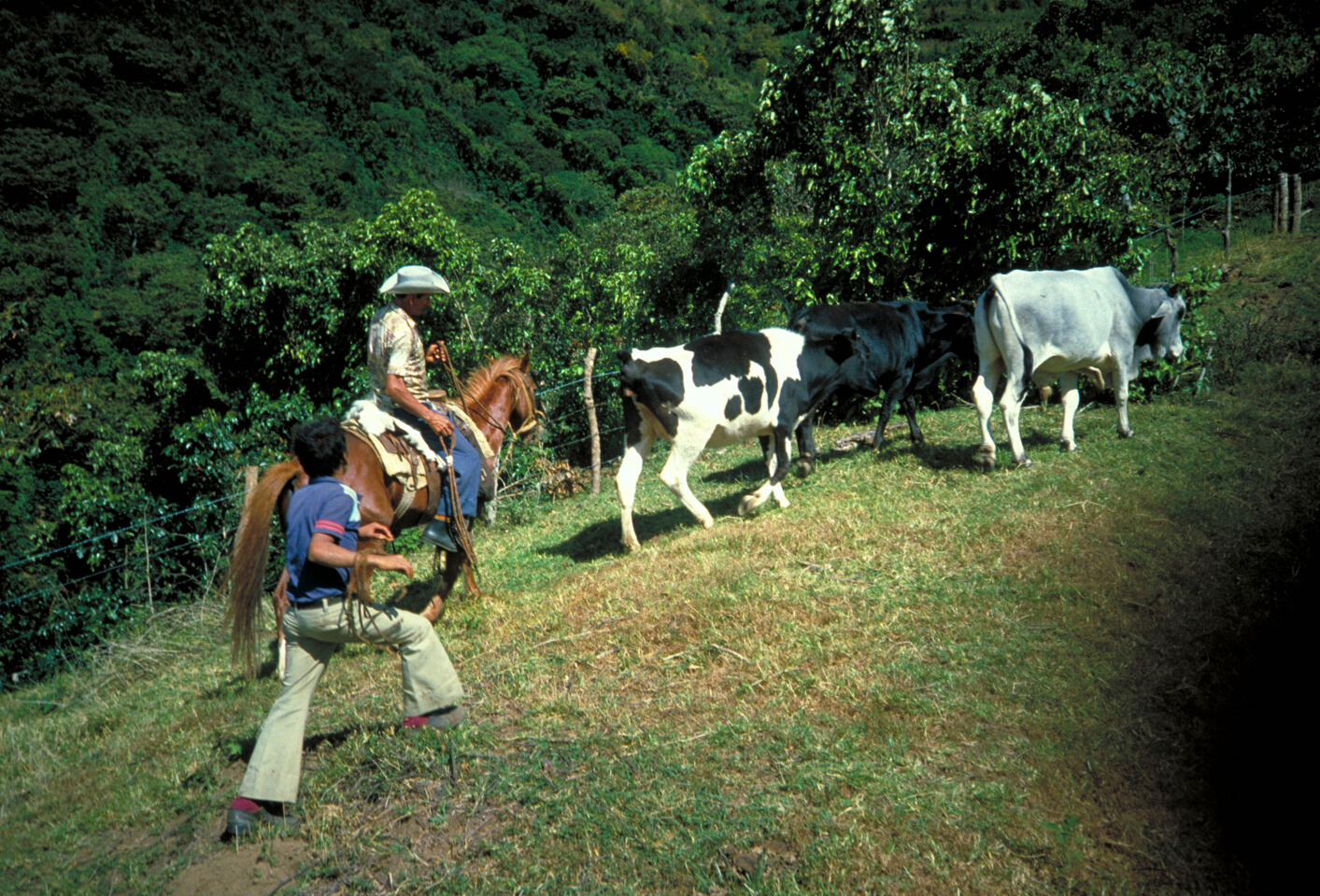
Juan Antonio and Jesus leave their house, set in the midst of the coffee plantation where they work, and make their way down the hill. lt takes Juan twenty minutes to reach the owner’ s house, where he meets David, his young helper. The two ,men go to the cow shed to clean out the stalls ‘and mix the feed, while Jesus continues walking for another half hour to the main road. She is on her way to a farmer’ s to huy a rooster for her three hens: “A house is not a house without a rooster,” she says.
Jesus and Juan Antonio have already lived in many parts of the country-moving from one place to another, fleeing the war zones of their country’ s civil war, constantly seeking a quieter life, a job, a house. But ali in vain. A year ago, when they lived in Apancayo, the coffee plantation owner sought Juan out to tend his cows and sheep. Livestock are rare in the mountains and not one of his fifty employees knew how to look after animais. Juan had no reason to refuse the owner’ s offer. Now he has sorne security. The wages are low, but regular, and his wife and eighteen-yearold daughter can work on the estate. The owner thinks that women make better pickers than men. The coffee is late this year and the rainy season is approaching. There is a danger that the strong winds will blow the beans off the trees. The pickers are impatient for the owner’ s signal to begin the harvest. The other twelve plantations in the cooperative have already started picking. But the owner insists on his coffee beans being heavy and ripe. More weight means more money. Jesus and Elizabeth look forward to bringing home a little money. “But only Cod and the master know when,” says Jesus, sighing.
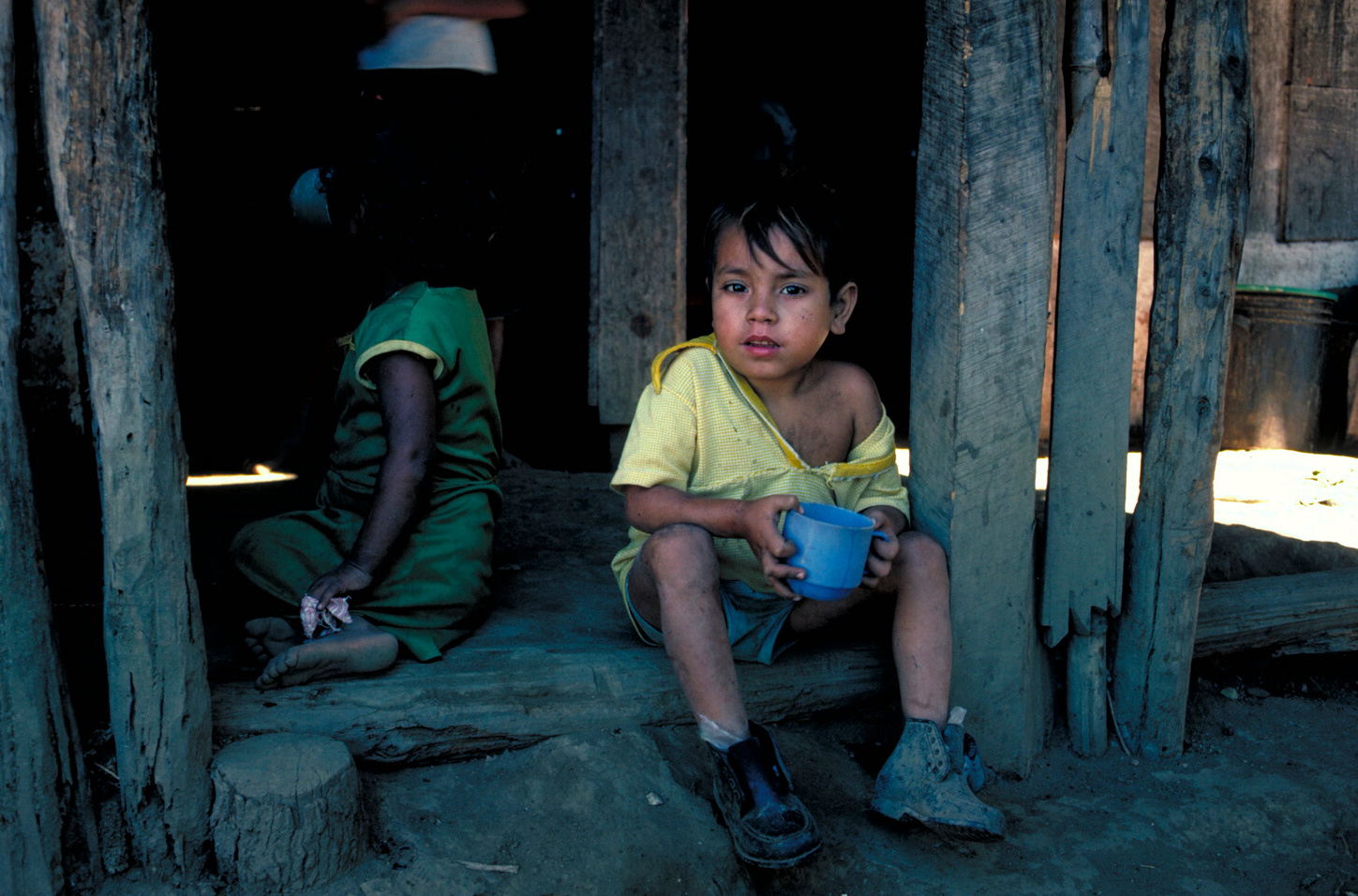
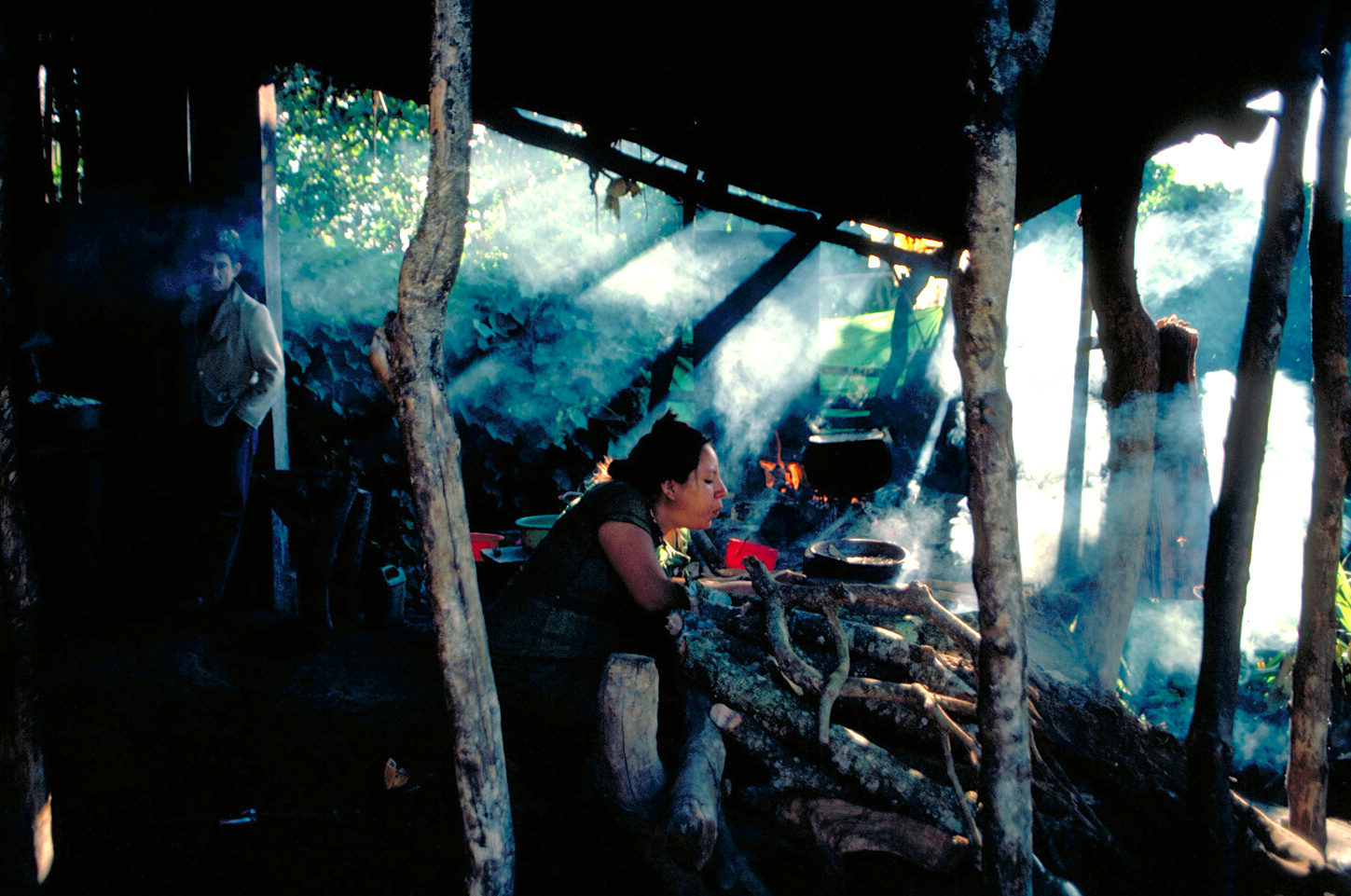
7:00. The roasting plant siren of the coffee cooperative reminds the peasants that a new day has begun. Elizabeth, up since her parents’ departure, prepares breakfast. She lights the wood fire, boils the water, and cooks the frijoles. The beans are of poor quality and take two hours to cook, an hour more than usual. To make tortillas, Elizabeth washes corn boiled the night before and grinds it. It takes ali her strength to tum the mill, and the movement hurts her back. Then she pounds the paste on a flat stone with a rolling pin and shapes it into little cakes with a quick, skillful movement of the hands. The meal will be ready just in time for her father’ s return at nine o’ clock.
Elizabeth is pregnant with her second child. The first, Carlos, was conceived in a moment of passion, as often happens at harvest time. Her lover disappeared after the harvest. The father of the second child, who is already married and has other children, visits her from time to time. Elizabeth never knows when he will arrive or when he will leave. He says that he will take her away, that he will find her a house and take care of her. A passive, withdrawn girl, Elizabeth has chosen to believe him.
Evelyne can’t get warm and is curled up on the ground, her dirty dress wrapped around her legs. She watches the two little boys amuse themselves by seeing who can pee the farthest. With little result, thirteen-year-old Francisca sweeps the porch that serves as a kitchen with a broom made of coffee leaves. The wind eddies and blows, further scattering the ashes and garbage. When Elizabeth and Jesus go off to the harvest, Francisca will look after the house and the children on her own. This morning she does the family laundry.
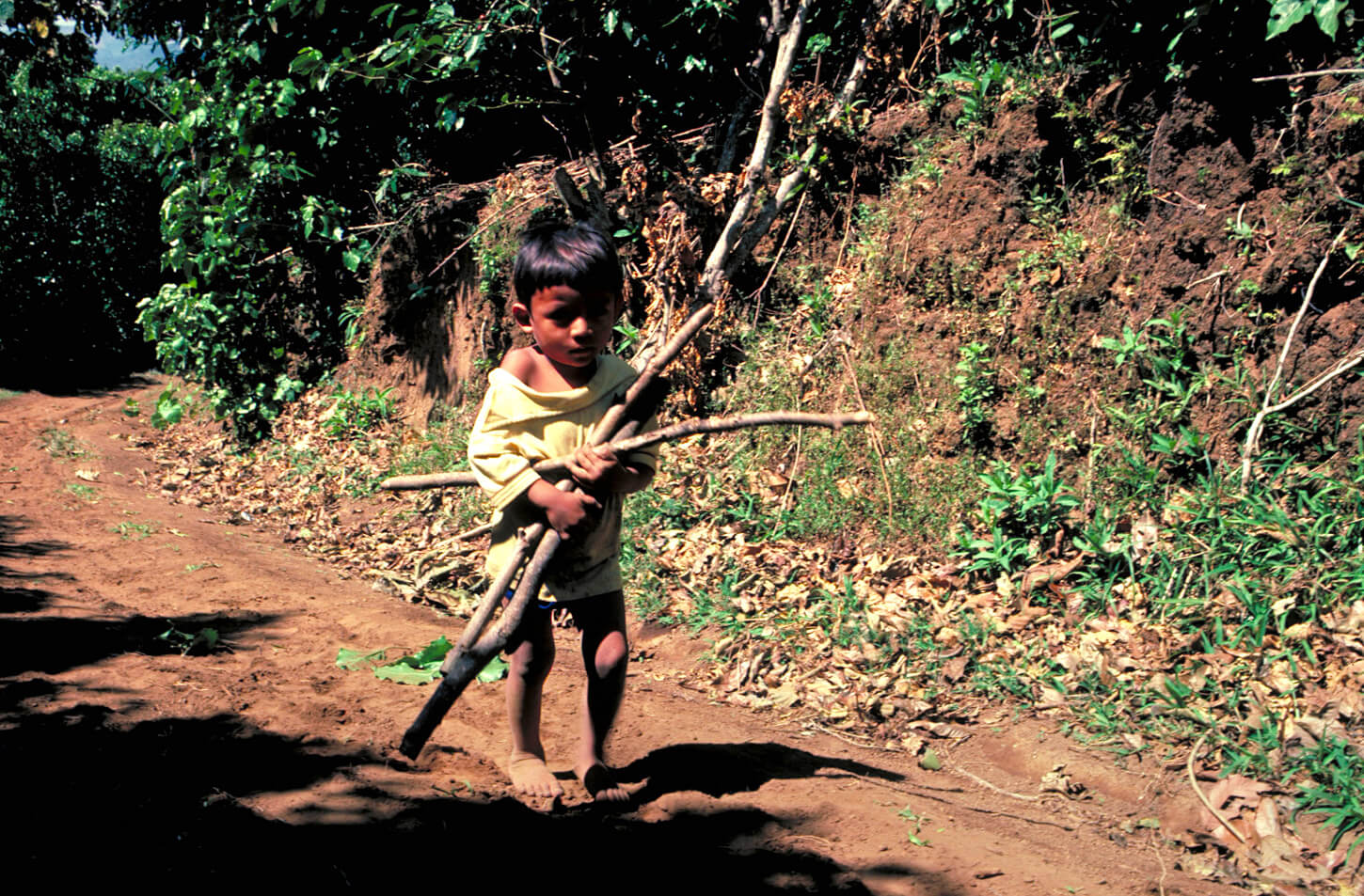
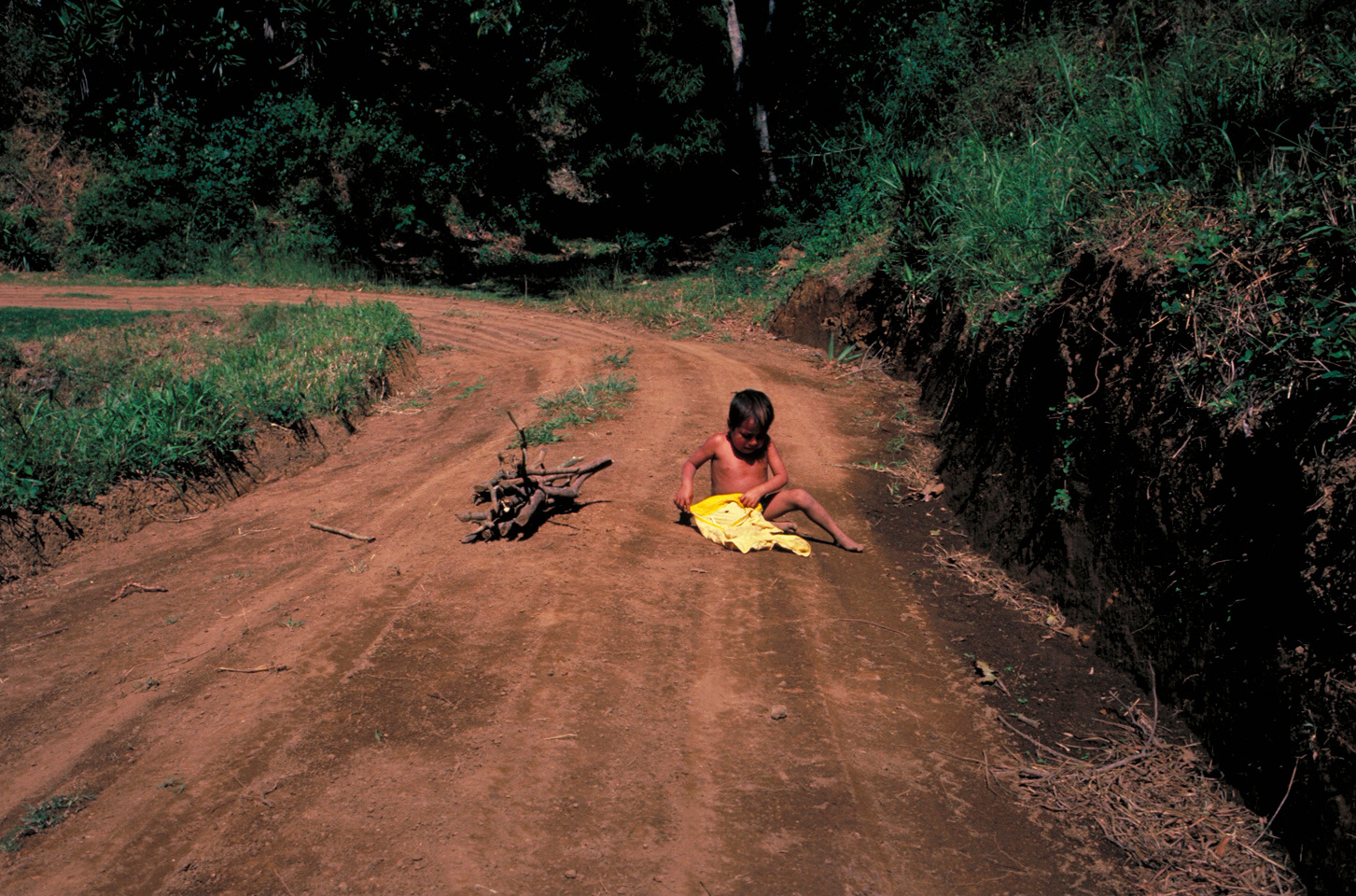
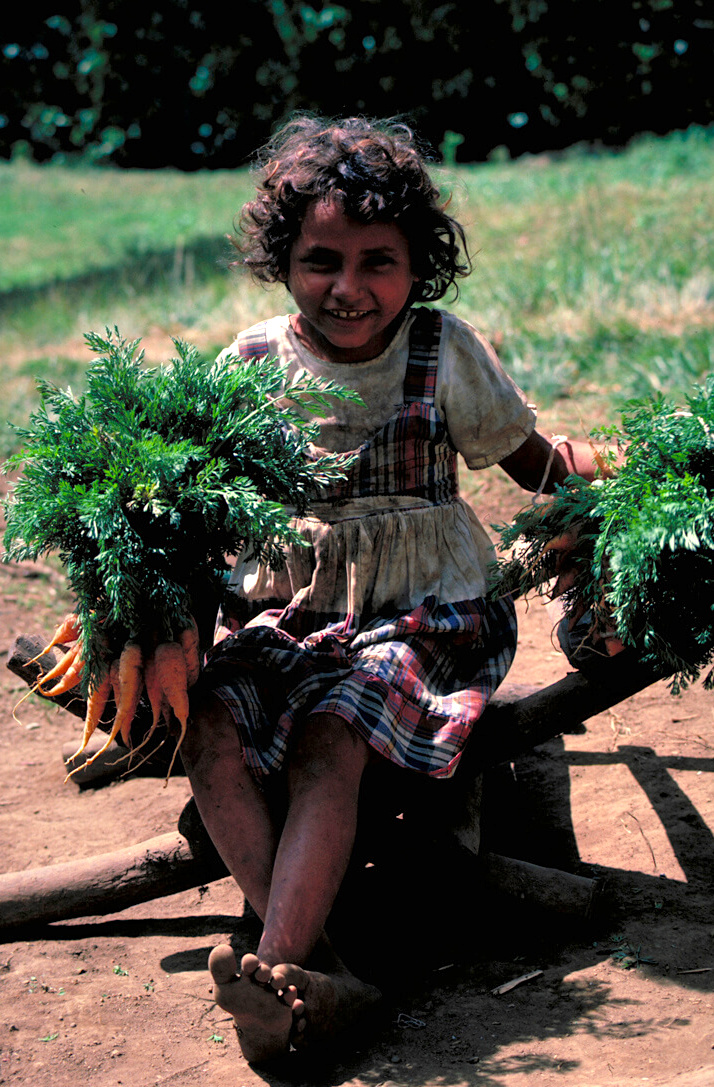
9:30. Juan Antonio and his helper take off again on horseback as soon as they have eaten their breakfast. They will spend the rest of the morning up on the mountain taking the cows and sheep to pasture and water.
12:00. Jesus returns with a rooster and sorne corn under her arm. The hens’ cackle grows louder and louder, and they start to squabble. “Finally sorne happiness in this house!” exclaims Jesus. She places the sack of corn she has just bought under one of the beds. Since the war the employees on the estate have stopped growing corn on land provided by the owner because their harvest was often stolen as soon as it was ripe. Jesus has hardly sat clown when Evelyne climbs up on her knees. She loves her little granddaughter and has enormous patience with children. She has had nine herself. Three daughters by one man who theo left her for another woman. One of them died, the second lives on the coast with her three children, and Lidia, Evelyne’ s mother, lives wherever she can find work. She cornes to visit her daughter when she has money and cao get time off.
2:00. Juan and David are back, and the menu is the same as for the previous meal. The tortillas are dipped in bean soup. If there is soup left over, they make more tortillas. If there are tortillas left over, they make more soup. The men leave for the estate, loaded with spinach for the owner and grass for the young calves. The heat is intolerable, and the women stretch out under the orange tree to cool off. Jesus is tired, but, with the children running around and shouting, there is no possibility of a siesta for her.
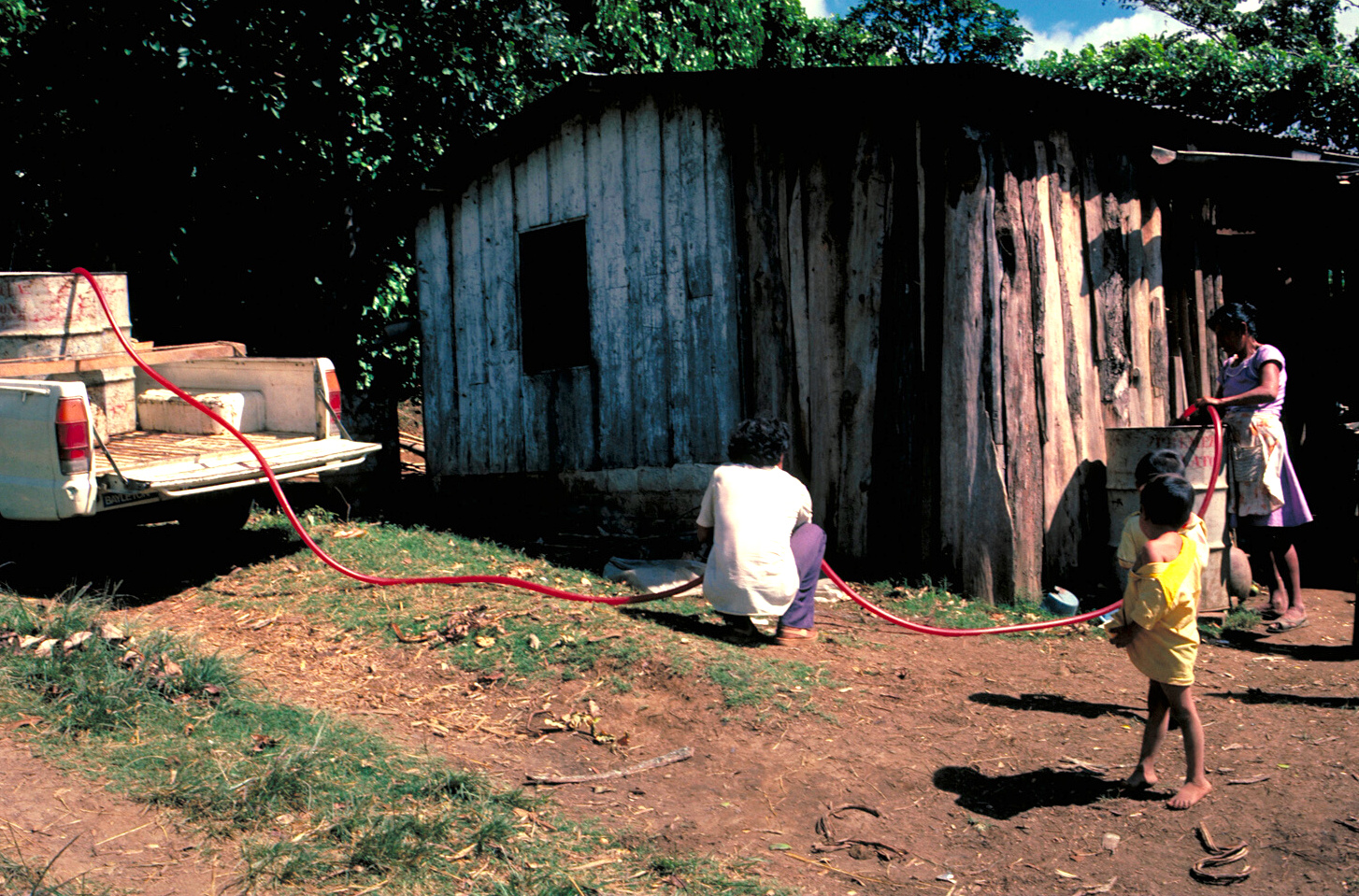
3:00. As always when the rainy season is approaching, the sky darkens suddenly at this time of day. A thick fog settles on the mountain and the wind rises. lt grows cold, and the family take shelter inside and listen to the radio. The music lulls the little ones to sleep. The women welcome the sight of a pickup truck making its way up the estate’ s dirt road to fill the now empty oil drum with water. This supply must last for a week.
4:00. The wind has scattered the washing that was drying on the line and on the branches, and Francisca runs about picking up the clothes. The co-op siren blows. lt is time to prepare the evening meal: the beans will take just as long to cook and more corn will have to be ground for the tortillas.
7:00. Gathered under the kitchen roof and sheltered from the wind, the family eats the last meal of the day. A single lamp lights their faces and the plates on their knees. Juan is tired and doesn’t talk much. He prefers to listen, as Jesus shares the gossip she has gleaned during her journey. The children know they must be quiet during the adults’ conversation. The lamp is extinguished early to save oil. There is nothing to do now but go to bed, hoping that the earth will not tremble, the roof will stay on, and Mother’ s cough will get better. They all need a good night’ s sleep.
